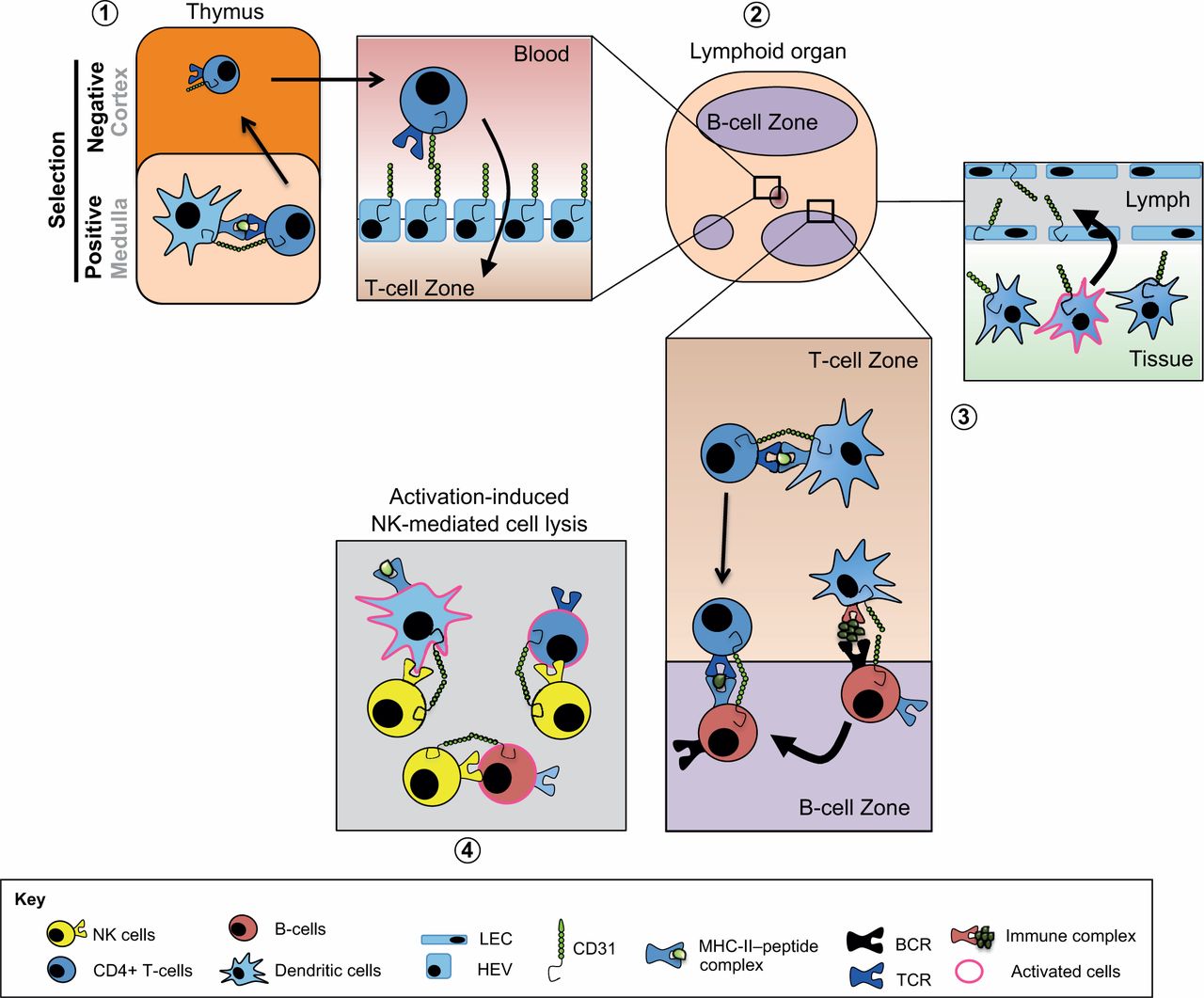CD31-Expressed Exosome Modification Service
CD31-expressed exosome modification is a technology designed to modify exosomes by expressing CD31, enabling them to evade macrophage-mediated immune clearance. CD31 (PECAM-1) is a transmembrane glycoprotein widely distributed on vascular endothelial cells, platelets, and certain immune cells, playing a crucial role in cell adhesion, signal transduction, and immune regulation. By employing genetic engineering or protein conjugation techniques, CD31 can be integrated into the exosomal membrane proteins or separately modified and conjugated with exosomes. This optimization enhances their biological function, improving their stability, targeting ability, and immune regulatory capacity within specific biological environments.
CD31-expressed exosome modification service is widely applied in cardiovascular disease research, tumor microenvironment modulation, immunotherapy, and tissue regeneration. The modification of exosomes with CD31 enhances their interaction with endothelial cells, promotes angiogenesis, and effectively reduces macrophage-mediated phagocytosis, thereby extending exosomal circulation time in vivo. Additionally, this approach can optimize exosomes as biological delivery vehicles, increasing the efficiency of drug or biomolecule delivery to target tissues, providing innovative technological support for precision medicine.

Marelli-Berg, F M. et al. Journal of Cell Science, 2013.
Figure 1. Putative Functions of CD31 in the Regulation of the Immune System.
Services at MtoZ Biolabs
Through genetic engineering or chemical modification techniques, MtoZ Biolabs offers a CD31-expressed exosome modification service that enables the modification of exosomes with CD31 to enhance their targeting capability and biological functionality. Leveraging advanced platforms, including high-precision ultracentrifugation, transmission electron microscopy (TEM), nanoparticle tracking analysis (NTA), and high-resolution mass spectrometry (LC-MS/MS), MtoZ Biolabs ensures the purification, size characterization, protein expression validation, and functional analysis of exosomes. This guarantees the stability and biological activity of CD31-expressed exosome modifications. The final deliverables include high-purity, high-quality CD31-expressed exosomes along with a comprehensive experimental report, providing robust data support for applications in cardiovascular research, immune regulation, tumor therapy, and precision drug delivery.
Service Advantages
1. Advanced Analysis Platform
MtoZ Biolabs established an advanced CD31-expressed exosome modification service platform, guaranteeing reliable, fast, and highly accurate analysis service.
2. One-Time-Charge
Our pricing is transparent, no hidden fees or additional costs.
3. High-Efficiency Expression and Functional Stability
Utilizing genetic engineering or chemical modification techniques, we ensure stable CD31 expression on the exosome surface. The modification efficiency is validated using transmission electron microscopy (TEM), Western blot, and flow cytometry (FACS), guaranteeing the reliability of exosome functionality.
4. Customized Solutions
MtoZ Biolabs offers flexible CD31-expressed exosome modification strategies tailored to client-specific requirements. Our comprehensive one-stop service covers exosome source selection, modification optimization, functional validation, and data analysis, catering to diverse research needs across different fields.
Applications
1. Autoimmune Disease Research
The CD31-expressed exosome modification service can be utilized to study autoimmune diseases such as systemic lupus erythematosus (SLE), rheumatoid arthritis (RA), and multiple sclerosis (MS). By modulating T-cell and B-cell activation, these modified exosomes help reduce excessive immune responses, providing a potential avenue for developing novel immune-regulatory therapies.
2. Anti-Inflammatory Therapy and Inflammation Modulation
CD31 plays an immunosuppressive role in inflammatory microenvironments. Modified exosomes expressing CD31 can be used to investigate inflammatory diseases such as inflammatory bowel disease (IBD), atherosclerosis, and chronic inflammation. These exosomes help reduce the release of inflammatory cytokines and suppress excessive immune responses, contributing to the development of targeted anti-inflammatory treatments.
3. Anti-Tumor Immunotherapy
CD31 plays a crucial role in modulating tumor-associated immune cells within the tumor microenvironment (TME). CD31-expressed exosomes can be used to explore their involvement in immune suppression and tumor immune evasion, as well as to assess their potential application in combination immunotherapy strategies for enhancing anti-tumor responses.
4. Cardiovascular Disease Research
CD31 is essential in vascular endothelial cells and immune cells, making CD31-expressed exosome modification service a valuable tool for studying atherosclerosis, vascular injury repair, and ischemia-reperfusion injury. These exosomes can be evaluated for their potential to reduce vascular inflammation and promote vascular regeneration, offering promising applications in cardiovascular disease therapy.
FAQ
Q1: Why Is it Necessary to Modify Exosomes with CD31?
A1: CD31 (PECAM-1) is a crucial immune regulatory molecule widely expressed on endothelial cells, platelets, and certain immune cells. It plays a key role in immune suppression, cell-cell interactions, and inflammation regulation. By modifying exosomes with CD31, their immune-modulatory properties can be enhanced, helping to reduce excessive immune activation. This modification holds potential applications in autoimmune disease treatment, organ transplant immune tolerance, and anti-inflammatory therapies.
Q2: Can the CD31-Modified Exosome Service Be Customized?
A2: Yes, we provide personalized customization services tailored to client needs, including:
CD31 Expression Levels: Optimization of modification strategies to meet specific research requirements.
Exosome Source: Selection of specific donor cell types, such as MSC-derived, immune cell-derived, or cancer cell-derived exosomes, to accommodate different disease models.
Additional Co-modifications: Integration of other functional modifications, such as fluorescent labeling or drug loading, to further enhance exosome functionality.
How to order?







